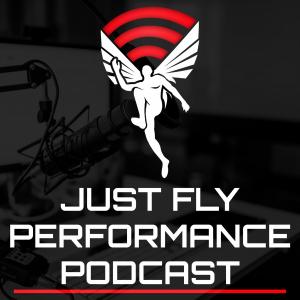Just Fly Performance Podcast

223: Charlie Reid on a Learner-Centered Approach to Performance and Dissolving the Term of “Corrective Exercise” | Sponsored by SimpliFaster
Today’s podcast features personal trainer, massage therapist and musician, Charlie Reid. Living in the San Francisco Bay Area for 8 years of my life brought with it the opportunity to meet and learn from many wonderful and knowledgeable coaches and trainers. One of those that I met was Charlie, who I met at Pat Davidson’s “Rethinking the Big Patterns” seminar. Charlie and I later were able to both spend time at Kezar stadium learning sprint and movement philosophy from Adarian Barr, while having plenty of conversations on training. Charlie is one of the smartest and wisest coaches that you may not know. His base of knowledge is massive, as well as the range of those coaches and systems he has spent time learning from. If there is a system of thought out there in the world of movement and human performance, there is a good chance Charlie has experience with it. Charlie is not only a strength coach, but also a certified massage practitioner, and spent years as a professional musician. On the podcast today, Charlie helps us “zoom out” our views on things like stretching, corrective exercise and motor learning. At the core of our chat today is an extended discussion on the redundancy of the term “corrective exercise” and how to look at the body in a manner that leaves us wondering what truly needs to be corrected. We also get into a learner-centered approach, and how facilitating that approach may differ from working from novices, up to more advanced athletes. Today’s episode is brought to you by SimpliFaster, supplier of high-end athletic development tools, such as the Freelap timing system, kBox, Sprint 1080, and more. View more podcast episodes at the podcast homepage Timestamps and Main Points 5:50 What Charlie learned from a silent meditation retreat, and what he learned from that in regards to exercise and the body 9:50 The relationship between long isometric holds, fatigue and heart rate variability 17:00 Charlie’s experience with the Egoscue method, and what good could possibly come from holding a passive stretch for such a long period of time 23:20 Ideas on Feldenkrais and the body’s ability to heal itself, as well as teaching individuals to help themselves as the highest order priority in coaching 36:05 Charlie’s take on corrective work and rehab based on a learner-centered approach versus a structured approach 48:05 How being a massage and body-worker has helped Charlie to acquire a better understanding of the body and how to train individuals 57:20 How Charlie puts together a rehab/training program based on common principles and concepts 1:01:20 Where respiration and breathing has landed for Charlie and how he integrates it “As soon as we get the slightest bit of discomfort, we cringe up, and tighten up, instead of softening around the pain” “I wonder if you could look at someone’s HRV score, and correlate that with their ability to tolerate long isometrics” “Two of the most common reasons why bodies get better is novelty and graded exposure” “Feldenkrais never told you what to do, you got to come up with your own solutions, that is the highest level” “When you give constraints for a beginner, maybe it’s better to create more structure first” “The consumer really drives (which coach) gets the dollars, and that’s really frustrating (in light of a “position driven” versus “learner driven” approach to training)” “I’m less and less a fan of “corrective” exercise, it’s kind of a popular word, I know language is important, but I don’t know if we are correcting anything. They are low-force, inner directed mindful exercises to generate some awareness around something” “I’m always asking the questions, say you are doing a side-clam for your glute medius, but show me where that goes, show me where that’s eventually going to lead to” “I don’t love the term “corrective exercise”, it’s all just gradations of movement”






 Visit Podcast Website
Visit Podcast Website RSS Podcast Feed
RSS Podcast Feed Subscribe
Subscribe
 Add to MyCast
Add to MyCast